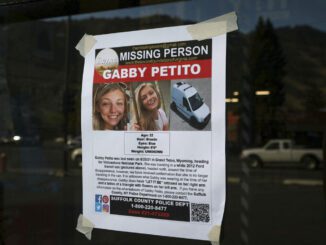
Citizen journalism has always been a thing in American culture. But with the ascension of blogs in the early 2000s and then social media platforms such as Twitter and YouTube several years later, the number of citizen journalists exploded, with Average Janes and Joes everywhere harnessing the power of being able to provide on-the-scene photos, videos, and/or commentary on stories that impacted their communities.
Naturally, this development has been the cause of quite a bit of consternation over the years at legacy media outlets like the New York Times, the Washington Post, and other news organizations that have been around for a while and who have established reputations among their like-minded peers as being the cream of the crop when it comes to keeping the public informed and holding public officials accountable.
Their complaints about citizen journalists seem to boil down to the following so-called issues: most of them didn’t go to school for journalism (“haven’t put in the work”); few of them are subjected to the checks and balances system legacy media outlets purport to have; they don’t always have access to “experts” who seemingly could clarify or verify/shoot down any claims made; and many citizen journos have baked-in biases that are reflected in their stories and social media posts.
The problems with these complaints are numerous.
First, you don’t have to have a degree in journalism to be a good journalist who simply reports the facts and lets the reader form their own opinions. There are many well-known journalists out there, including some who have won Pulitzers, whose political bias is present in every piece they report and every tweet they send, which clouds the story and causes people to question its validity.
Second, the checks-and-balances system at legacy media outlets has been a massive failure, as evidenced by their repeated amplification of the Trump/Russia collusion hoax and their deliberate suppression of stories such as Hillary Clinton’s role in that hoax. Legacy media failed to report the Hunter Biden laptop emails, and they censored and discredited anyone who questioned the origins of COVID-19 or pushed alternative forms of treatment for the virus.
Third, it’s not uncommon for the “experts” quoted by legacy media outlets to conveniently push the very same narratives that the writers themselves seem intent on pushing, much in the same way we see “experts” used by the prosecution and defense during trials.
Lastly, it is the left-wing bias of legacy media journalists that has caused the levels of trust in the media to fall to historic lows, so any complaints about the alleged baked-in biases of citizen journalists by these people are entirely deserving of heaping doses of mockery.
If they truly think such biases are wrong and have no place in neutral reporting, maybe they should try to fix those issues in their own publishing houses before casting stones at others.
That also holds true for all the other complaints, about the access to experts, the checks and balances system, all of it.
One tweet that perhaps best personifies the arrogance of legacy media journalists, in general, came from Washington Post media reporter Paul Farhi earlier this month, who seemed rather perturbed by a discussion about citizen journalism.
“Someone invented the phrase ‘citizen journalism’ a few years ago to describe amateurs doing the work of pros,” Farhi wrote.
“Yes, it occasionally works, but probably no more often than ‘citizen cop,’ ‘citizen attorney’ or ‘citizen soldier,’” he continued.
In other words, in his view, citizen journalists rarely contribute anything of real value to the conversation.
In response, another tweeter clapped back, “Find me another profession that thinks more highly of themselves, while simultaneously demonstrating to the public that they deserve very little respect.”
Indeed.
North Carolina native Stacey Matthews has also written under the pseudonym Sister Toldjah and is a media analyst and regular contributor to RedState and Legal Insurrection.



